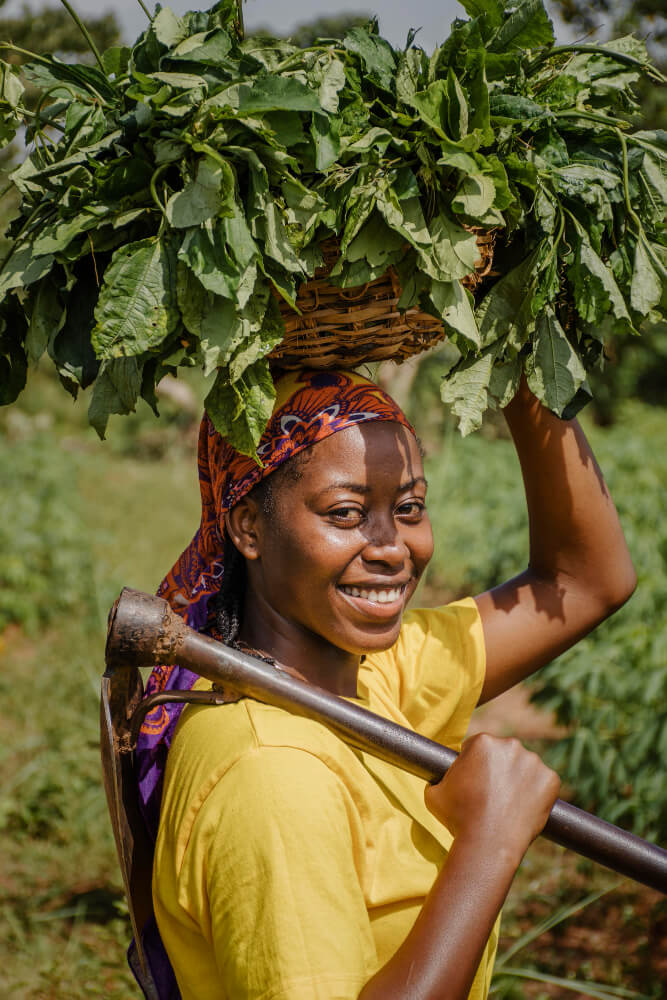Supporting Climate Adaptation With Women’s Organizations
| Date | 2023 |
| Location | Asia and Africa |
| Funding | Bill & Melinda Gates Foundation (BMGF) |
| Programs | The W+ Standard |
WOCAN has received a grant for Assessing the Landscape: Climate Adaptation, Women’s Organizations & Enterprises from the Bill & Melinda Gates Foundation (BMGF) to design an innovative model in gender-responsive climate adaptation and resilience.
The intended outcome of this planning grant is the development of a Strategy Implementation Framework to provide a clear path for rural women’s organizations and enterprises to meet their needs for climate adaptation. Activities funded by this planning grant will produce the ‘proof of concept’ for the model to use a result-based financing and market-based approach using the W+ Standard to provide rural women’s organizations and enterprises with revenue and technical assistance to support climate adaptation initiatives.
The grant will provide WOCAN with 18 months of support for the planning and readiness assessment of long-term opportunity through the development of a model that can be scaled, and culminate in a detailed program model to be presented to the BMGF as well as other funders, to Scale Impact for Gender Equality and Climate Outcomes. This will provide resources to women’s organizations and enterprises, Support- Institutions (that provide technical assistance), and funding intermediaries to scale up gender-responsive climate mitigation and adaptation actions to achieve climate adaptation and women’s empowerment outcomes simultaneously within the most climate-vulnerable communities.
WOCAN’s ultimate goal is to enable rural women’s organizations to become technically and financially self-sufficient to address climate adaptation for themselves, their families and their communities. We believe that we can harness the decades of experience of WOCAN and its partners at the nexus of gender and climate, to leverage climate finance and use the W+ Standard as means to this end. The W+ Standard provides the model to scale this approach by providing an innovative mechanism to use climate mitigation financing for climate adaptation purposes, through its requirement of grant provisions to women’s groups at the local level.
The problem statement for this grant is that insufficient information is currently known about the landscape of potential women’s organizations and enterprises, Support Institutions, and funders that could engage in the scaling of gender and climate impacts. This includes a need for more information about the buyers of W+ credits and public and private investors that are seeking opportunities to invest in gender and climate projects.
Activities of this 18-month planning grant include:
- Research to identify and understand the needs of rural women’s organizations and enterprises working on climate mitigation and/or adaptation and women’s empowerment, from their perspectives, in 2 regions of Sub-Saharan Africa and South Asia
- Mapping the Support Institutions and Climate Project Developers in the same 2 regions
- Application of the W+ Standard to 2 projects
- Training for an enlarged and geographically diversified pool of W+ experts and verifiers
- W+ market research and development for sales of W+ credits
- Assessment of the suitability of the W+ Standard benefit sharing mechanism and process to meet needs of rural women’s organizations for climate adaptation
- Mapping the financial intermediaries, funders and investors supporting gender and climate
Four Taskforce groups have been established for these activities, to tap into the expertise and experience of a diverse group of experts in Women’s Groups/Enterprises, Capacity Development for the W+ Standard, W+ Market Development and Financial Frameworks. WOCAN is honored to have the following distinguished individuals as members of the Taskforces, as seen by their bios below:
Program Taskforce
Taskforce 1: Mapping Womens’ Organizations
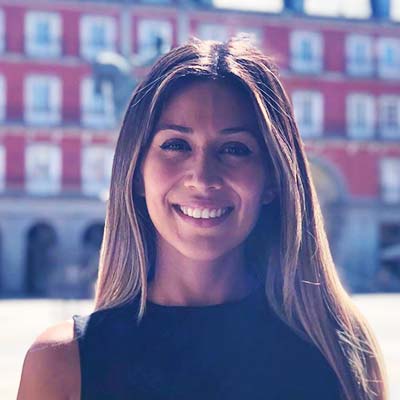
Larissa Dominguez, Mexico
Program Manager
Larissa Dominguez is a gender specialist with extensive experience in governance of natural resources, rural development and public policy. She has provided technical support and capacity development for stakeholders ranging from government officials to grassroots organizations and women’s groups. She is currently the focal point for the implementation of Pillar 3 – gender equality in family farming – of the United Nations Decade of Family Farming in FAO. Larissa was trained in the W+ Standard process on site in Kenya in 2022. She holds a BS in International Relations from the Instituto Tecnológico Autónomo de México in Mexico and a MSc with Honours in Social Development with a focus on Gender and Climate Change from the University of New South Wales in Australia. Larissa lives in Rome, Italy and Mexico City.
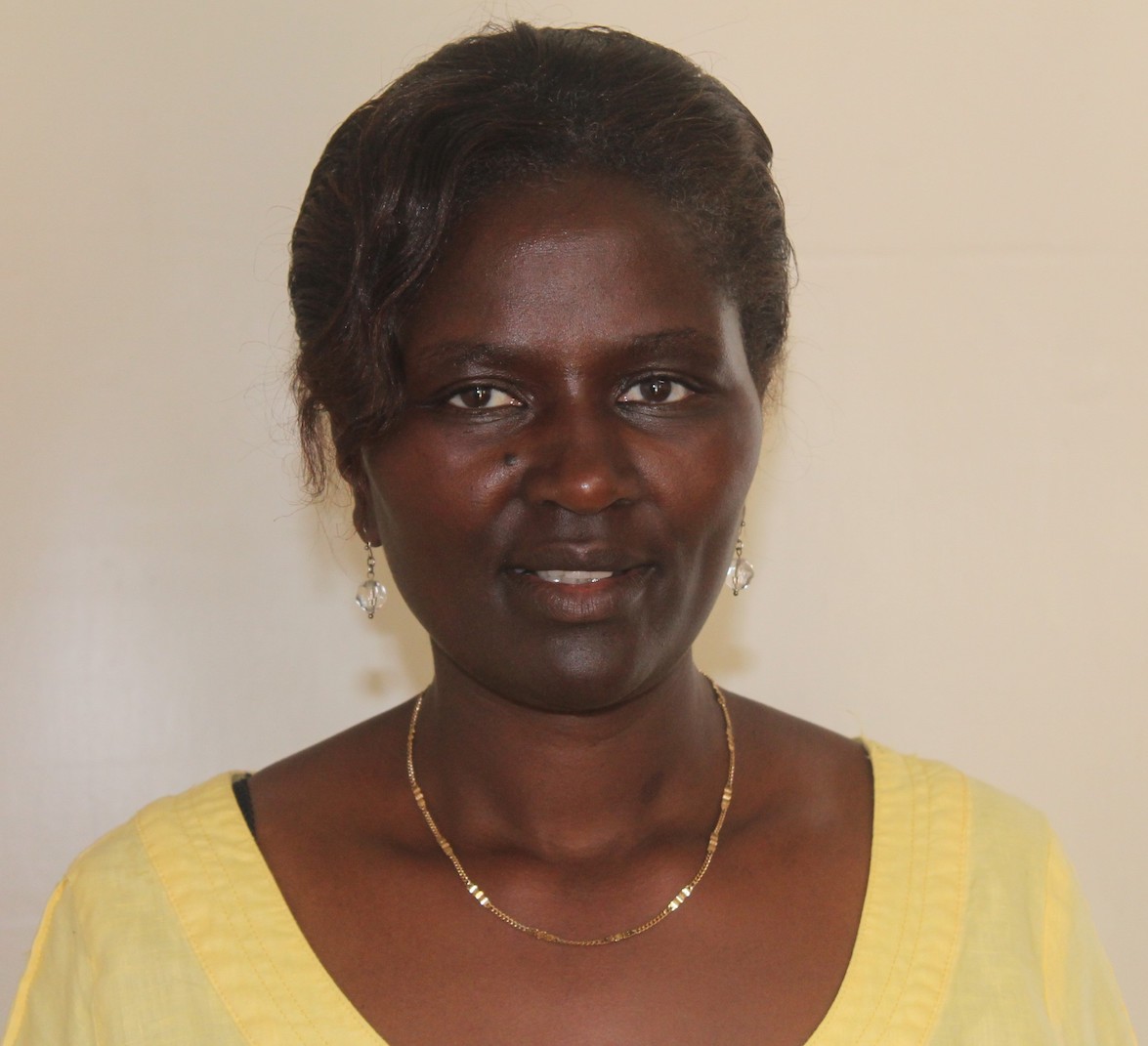
Annabell Waititu, Kenya
Annabell Waititu has a 20-year career in the natural resource management sector, particularly in the areas of water supply services, climate resilience and gender mainstreaming. As a WOCAN Core Associate, she has participated in W+ Standard measurements in Kenya, co-trained for gender mainstreaming for the Family Farming Project of FAO and led WOCAN’s global meeting of Women’s Leadership Circles in Agriculture. Annabell has consulted on leading sector initiatives including the Kenyan water sector reforms, Water for Africa Cities, the Lake Victoria Water and Sanitation Training and Capacity Building Programs, World Bank’s WASSIP program, the Nile Basin Initiative, among other national and regional projects. She has also taken part in international research projects on gender mainstreaming across the sectors and contributed to the development of various knowledge products on the subject. She is a member of the Investment Committee with Kenya Innovation Finance for Water (KIFFWA), a Board member with Sanivation and a Fellow at the Center for Governance and Sustainability at the University of Massachusetts, Boston. She is also the 2022 Gender Diversity in Water IWA Award Winner and resides in Nairobi, Kenya.
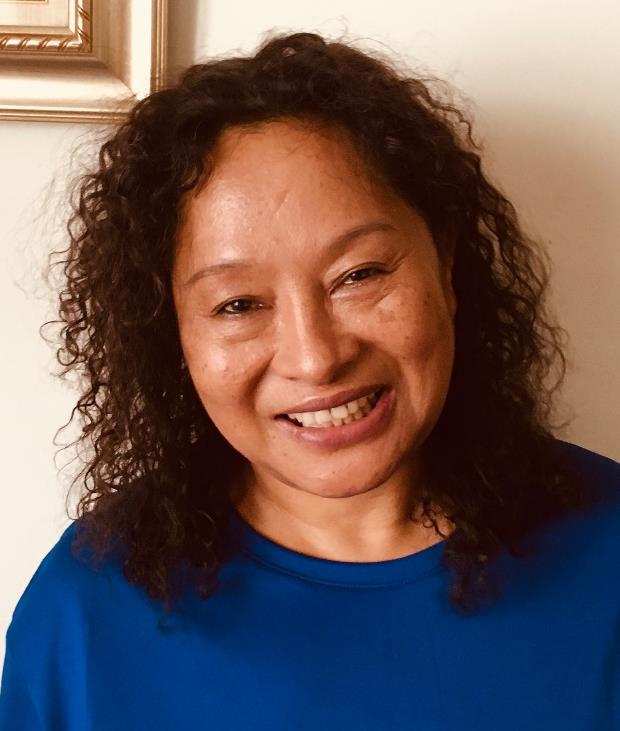
Dibya Devi Gurung, Nepal
Dibya Devi Gurung has more than 25 years of experience integrating gender and social inclusion issues into environmental sectors, particularly community-based natural resource management, forestry, agriculture, and climate change. She has worked as a practitioner, researcher, and trainer for WOCAN and various development organizations, and has strengthened more than 300 local women’s groups engaged in conservation and development initiatives. As a WOCAN Core Associate, she was engaged in the first project to use the W+ Standard, to measure impacts of biogas on women in Nepal and is currently engaged in building the readiness for the W+ Standard applications in forestry projects of the World Bank in Nepal. She has provided expert services to several governments, NGOs and multilateral organizations in South and South-East Asian countries, using participatory methods and approaches. Dibya resides in Kathmandu, Nepal
Taskforce 2: Capacity Building
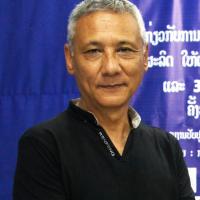
Barun Gurung
As a WOCAN Core Associate, Barun has designed and delivered WOCAN’s training courses for two decades, in Gender Integrated Planning, Reframing Leadership for Gender Equality for numerous agencies and provided training in the W+ Standard methodology for WOCAN’s Team of W+ Experts. An anthropologist with training in ecological anthropology, Barun has worked extensively with ethnic communities in the Himalayan region of Northeast India, Bhutan, Nepal and the Yunnan province of China, studying their indigenous knowledge of subsistence crops and medicinal herbs. As the coordinator of the Consultative Group on International Agriculture’s (CGIAR) system wide program on Participatory Research and Gender Analysis from (2003-2007), Barun’s research attention and focus was on trying to better understand how learning and change can be affected for mainstreaming gender-sensitive participatory approaches within research institutions that work on agriculture and natural resource management. There he led a team of researchers and trainers to provide capacity development for organizational research and implementation of change strategies in selected CGIAR centers, eight National Agricultural Research Centers of East and Central Africa, and five agriculture and natural resource management organizations in the Eastern Himalayan Region and Laos. Barun holds a PhD in Anthropology from the University of Hawaii and speaks English, Urdu, Hindi, Nepali, Tibetan and Dzhongkha and resides in Kona, Hawai’i.

Liz Allen
Liz is a director of the Social Audit Network (SAN) and a member of the W+ Advisory Council. Liz has a reputation for creating and developing social enterprises that deliver change in communities; working with enterprises to deliver and manage public sector contracts; and for delivering highly effective social impact measurement. She is also a director at the Connectives, specializing in social, economic and environmental impact. Liz has a first degree in Business and Leisure Management and a Master’s degree in Social Enterprise, as well as being a qualified and experienced social accountant and auditor with excellent knowledge and proven practice in the field of social impact reporting. A strong advocate of corporate social responsibility, Liz encourages clients to find effective ways to tell the story of their organizations and measure their social impact. Also an experienced trainer, she has delivered social impact measurement awareness sessions to many groups representing the public, private and social sectors. She was engaged with the initial development of the W+ Standard in Nepal in 2015 and performed the first W+ verification for the biogas project there. Liz has verified several W+ certifications and co-designed a training for W+ verifiers from several countries that started in 2020. Liz resides in Liverpool, U.K.

Lisa McMullan
Lisa is the Director for Development at The Women’s Organisation and Enterprise Evolution Principal Consultant in Liverpool, U.K. Lisa seeks to build entrepreneurial capacity by providing advice, training, project development and evaluation support for entrepreneurs, entrepreneurial organizations and those working to support them. Lisa’s recent portfolio of work focuses on enterprise education and is the culmination of over twenty years’ experience working directly with would-be entrepreneurs, small business owners, social enterprise leaders and public institutions that inform the support and activities she now designs for entrepreneurs and their educators. Lisa has worked across the UK and internationally and has particular experience in the fields of: Women’s Enterprise: Adviser and promoter of women’s entrepreneurship and Evaluation: Applying social accounting and audit principles to design and undertake a holistic approach to evaluation activities to include social, economic and environmental impact. Lisa has verified several W+ certifications and co-designed a training for W+ verifiers from several countries that started in 2020. Lisa resides in Liverpool, U.K.
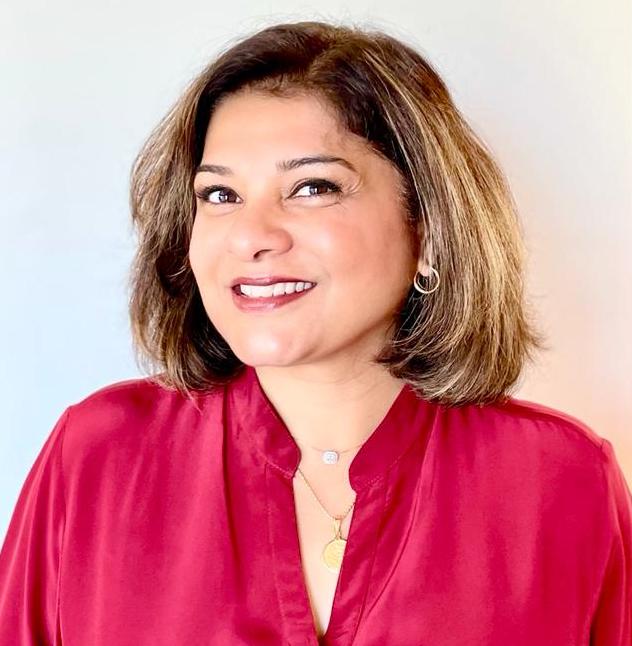
Smita Biswas
Smita Biswas is an economist, chartered accountant and sustainable development specialist with over 25 years of international development experience. She is a self-employed consultant specialising in programme design, gender and social inclusion, results monitoring and VfM analysis, particularly in the infrastructure (including energy) and manufacturing sectors. She is currently the Results Monitoring & Gender & Inclusion MEL Lead for the Global Energy Alliance for People and Planet (GEAPP) supported by the Rockefeller Foundation, IKEA Foundation and Bezos Earth Fund to accelerate and scale an equitable energy transition in developing countries. There Smita is responsible for the development of the results monitoring and measurement system and ensuring that Gender and Inclusion perspectives are considered in all aspects of the MEL system design and implementation. Additionally, Smita is a strategic advisor to the Self Employed Women’s Association, India; Monitoring, Results, Evaluation & Learning Advisor, where she advises SEWA’s MOVE (Mahila Owned Viable Enterprises) program. she had previously supported their microfinance activities for 5 years. She is also the Gender & Social Inclusion Lead for the ASEAN Low Carbon Energy Programme- a £15m technical assistance programme of the UK’s Prosperity Fund. The programme aims to help ASEAN harness the benefits from the deployment of low carbon energy by leveraging the regions/UK and other international countries’ extensive and proven expertise in green finance and energy efficiency. Smita headed the results monitoring and development impact team of the Private Infrastructure Development Group – a global infrastructure-focused poverty reduction programme aimed at encouraging private sector led infrastructure investment in the poorest developing countries. Prior to this, she was a Technical Director – Social Development at IMC Worldwide from 2003-2008 where she undertook social impact assessments and designed gender mainstreaming/livelihoods activities, especially for the infrastructure sector in selected countries of Asia and Africa. Smita holds a Bachelors in Economics and a Masters (with Distinction) in Social Policy & Planning for Developing Countries, both from the London School of Economics. She is a first time qualified Chartered Accountant, having trained with Ernst and Young, London between 1993-1996. Smita resides in London.
Taskforce 3: W+ Market Development
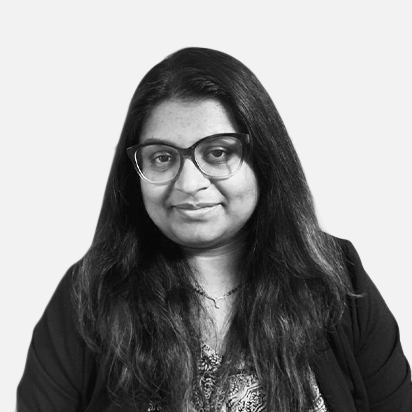
Tanushree Bagh Mukherjee
Chief Development Officer, Green Star
Tanushree Bagh Mukherjee has over 16 years of climate-specific experience across compliance and voluntary carbon markets, having started from the early stages of the Clean Development Mechanism. Currently the Chief Development Officer at Green Star, Tanushree previously worked in progressively senior roles with several international carbon organizations including South Pole, Evolution Markets and EcoSecurities, managing global project identification and business development, methodology and project development, as well as standards, regulatory services, and co-benefits mapping support. She was the Director of the Verified Carbon Standard Program Management at Verra, where she led a large team of carbon specialists as well as provided guidance and support to project developers and other stakeholders using Verra programs, standards, and frameworks to achieve their climate and sustainable development goals. She was a member of the team that developed the W+ Standard and applied it to a biogas project in Nepal. She is a member of the W+ Advisory Council. Tanushree holds a Master of Science degree in Natural Resources Management and Environmental Sciences with a major in Climate Change from TERI University and currently lives in Toronto.
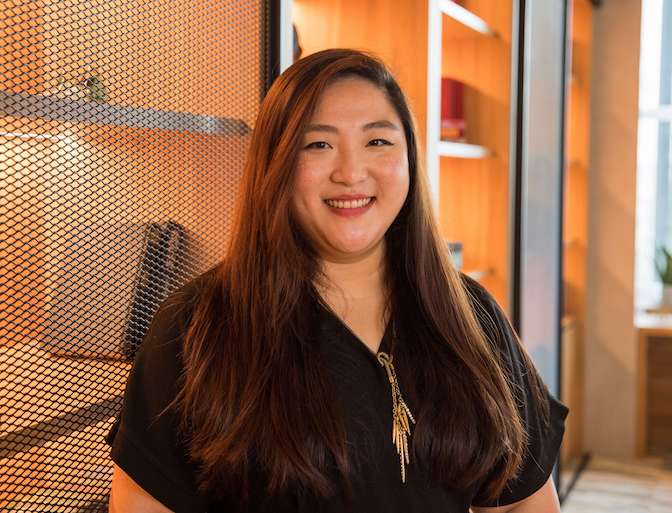
Genevieve Soh
Head of Platforms and Ecosystems, Climate Impact X
Genevieve is the Head of Platforms and Ecosystems at Climate Impact X (CIX). In her role, she is responsible for leading a team to build the company’s suite of trading venues including CIX’s marketplace, auctions and spot platforms. She also oversees CIX’s communications and community-building efforts, ensuring that the company articulates its purpose clearly to various stakeholder groups. Prior to this, Genevieve was a Principal with the Boston Consulting Group (BCG), and a Venture Architect Director at BCG Digital Ventures. She holds an MBA from the Northwestern University – Kellogg School of Management and a Bachelor’s degree in Accounting and Finance from Singapore Management University. She resides in Singapore.

Sue Phillips
Sue Phillips is a based international gender and social inclusion specialist and member of WOCAN’s Board of Directors and W+ Advisory Council. Her career has largely focused on working with international development donors, specifically the UK government, the UN, regional development banks and a range of INGOs. She founded and led Social Development Direct for 21 years (1999-2020), which became a leading provider of gender and inclusion expertise in the research and consultancy sector and influencer of donor and government policy and programming, particularly in the areas of gender-based violence, women’s economic empowerment and inclusive public services. Sue is currently working on a range of climate justice initiatives with a focus on significantly increasing the flow of climate finance to women and local communities in the Global South. She is currently engaged by the Integrity Council for Voluntary Carbon Markets as a gender specialist supporting the development of a global governance framework to strengthen the integrity of the VCM as it goes to scale. She also recently led a UK FCDO funded study on gender integration into voluntary carbon markets. Sue resides in London.

Justin White
Justin White is the Manager, Human Rights & Gender Equality, Global Sustainability at Mars where he advises business segments on sustainable sourcing efforts that reduce human rights risks in priority supply chains including palm oil, sugarcane, and rice. He leads a new human rights due diligence approach for carbon offset procurement and works cross-functionally to increase focus on social co-benefits in the carbon market. Justin is responsible for stewarding the Full Potential Platform where he partners with cross-functional peers to drive for gender equality across Mars’ workplaces, supply chain communities, and in the marketplace. Prior to his current role, Justin served a variety of roles on the Thriving People team across the socioeconomic impact, human rights, and gender equality. During his time at Mars, he has worked with the Farmer Income Lab and has assisted commercial teams in the design of their sustainable sourcing strategies that improve smallholder farmer incomes. Through the pandemic, Justin led a risk analysis to better understand how COVID-19 has and will create risks to people in priority extended supply chains. Justin led stakeholder engagement for the #HereToBeHeard campaign. He works closely with Verité and CARE, including our ongoing COVID-19 response and recovery efforts. He earned a B.A. from Colorado College, an M.A. in Responsible Management and Sustainable Economic Development from the United Nations University for Peace, and an MBA from American University’s Kogod School of Business. Justin lives in Virginia, USA.
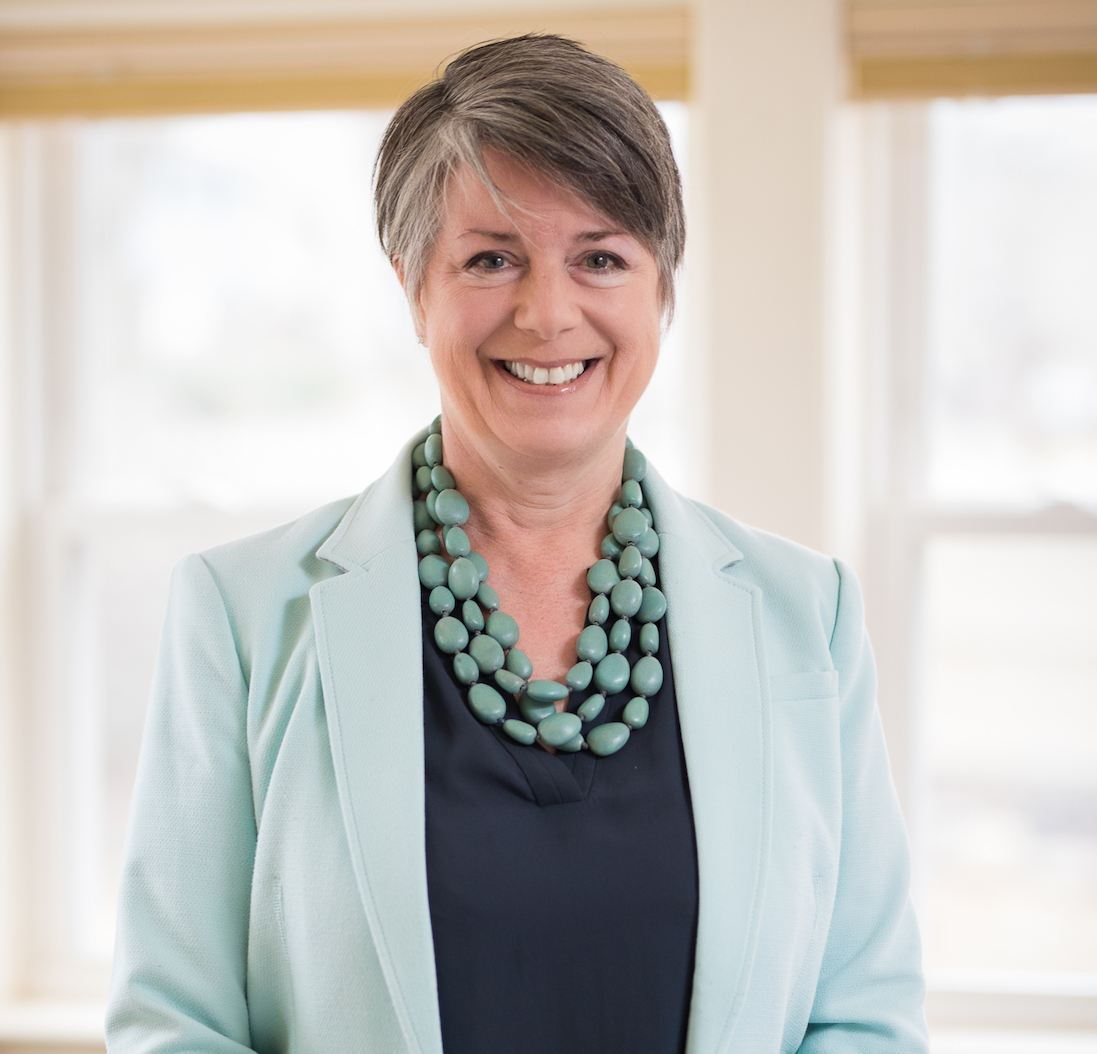
Mil Niepold
Mil Niepold is the Founder and President of The Mara Partners (TMP), a global consulting, research and training organization that works at the intersection of gender, equity and the environment to solve complex intersectional issues both in the US and globally. Mil works with Fortune 500 companies (including Amazon, Nestle and Mondelez, among others), governments, the United Nations and civil society organizations to structure equitable long-term solutions that balance the needs of all stakeholders. Mil is currently leading TMP’s research and thought leadership on the critical and oft ignored role that applying a gender lens to climate initiatives plays in accelerating impact from the grassroots through to the top levels of government. Mil pioneered the Integrated Gender and Climate Framework (IGCF) currently being used by a group of Fortune 500 companies. She has trained women climate leaders on negotiation, with organizations such as the Asian Development Bank, the Pan-African Climate Justice Alliance, as well as on strategies to ensure that women routinely influence decision-making processes related to land use, natural resource conservation, human rights and biodiversity. Previously, Mil was the Director of Policy at Verité – _a leading human rights organization — for 14 years, where she led several initiatives on women in the workplace and other multi-stakeholder initiatives for clients that included HP, Adidas, Reebok and Levi Strauss, among others. Mil is a gender and climate advisor to the Kite Climate School, the Daring Circle on Climate at the Women’s Forum for the Economy and Society, Co-President of the International Cocoa Initiative, the Boston College Center for Corporate Citizenship and was founding Co-Chair of Amnesty International USA’s first business and human rights group. Mil is also a frequent public speaker including for the World Bank, IFC, the Climate Investment Fund, and various universities. Mil lives in Washington, D.C.

Rachel Vestergaard
Rachel is the CEO and Founder of Empower Co., a company that is building the first global voluntary market for women’s empowerment units. Previously, Rachel was the Director of Business Development at Wildlife Works Carbon, the company that developed the world’s first validated and verified REDD+ project in 2011 and sold the first REDD+ carbon offsets to corporate buyers such as Coca-Cola, UPS, Microsoft, Hershey’s and more. She later joined Xpansiv as SVP of the Americas driving and overseeing the company’s expansion in the US voluntary carbon market. Since 2015 Rachel has been on the advisory council for the W+ Standard which compelled her to launch Empower Co. to create demand for W+ units to scale women’s empowerment and provide net positive contributions to all Sustainable Development Goals. In addition, Rachel volunteers her time as the Head of Market Mechanism Development for the Amazon Sacred Headwaters Initiative. Rachel resides in the San Francisco Bay Area.
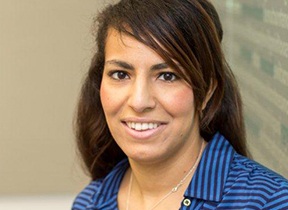
Heidi Hafes
Market Development Manager and Gender Lead Shell Foundation
Heidi Hafes leads Shell Foundation’s Gender-inclusion program. Heidi developed the Foundation’s gender-inclusion strategy, which included being pioneers in designing and funding business-first gender technical assistance for impact enterprises in the energy sector. Building on this work she is working with others to develop innovative finance mechanisms that incentivise mainstream gender inclusion into business models to deliver better outcomes for women. She resides in London.

Mansha Marwah
Mansha Marwah is a Gender and Sustainability specialist who is currently working in the renewable energy sector. In addition to her experience in and extensive knowledge about the ESG and Sustainability landscape in the EU, she also has experience working in the public sector and with intergovernmental organisations. She has worked with the Indian government and UN Women on gender mainstreaming in fiscal policy and urban spaces. Mansha is also a part of a team of specialists working with the UNECE on gender responsive standards. She is particularly interested in gender and climate adaptation and mainstreaming gender in the carbon market. Mansha holds a BA in Politics and International studies and a MSc in International development where she focused her research on women and climate change in urban india vis a vis water resources.
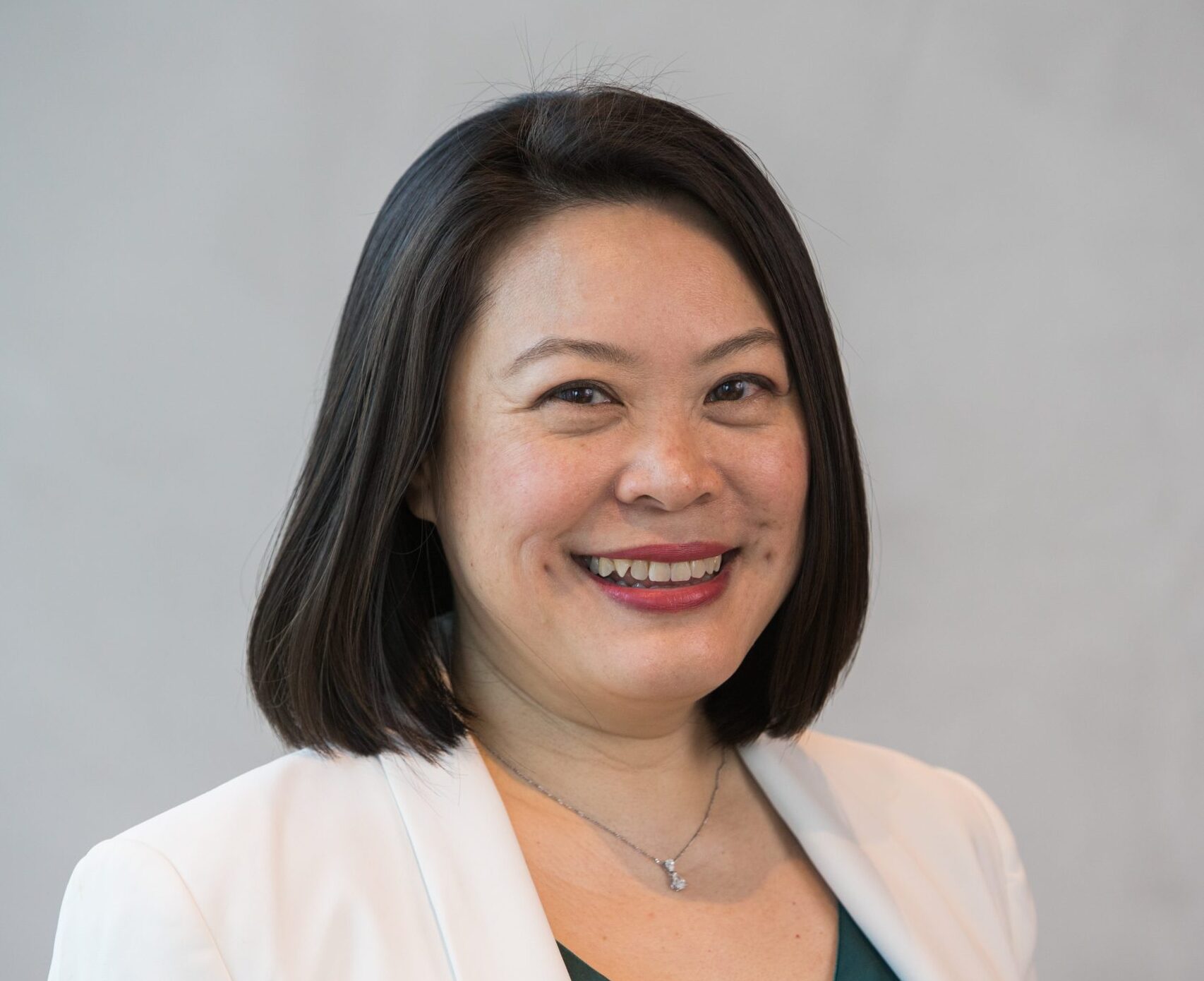
Denise Chak
Denise is an Associate Director at Climate Impact X, where she leads marketing communications for their carbon credit exchange platforms and engagement of the CIX Community. Prior to this, she held global roles at Shell, where she helped various businesses rebrand and create compelling narratives to navigate the energy transition. She also spent many years in B2B and B2C communications for the Singapore telecommunications industry. Denise is passionate about storytelling and helping others do the same. She has a desire to make social and environmental impact, exploring how she can leverage her skills in contribution to her local community, especially in aid of the ‘silver generation’.
Taskforce 4: Catalyzing Finance
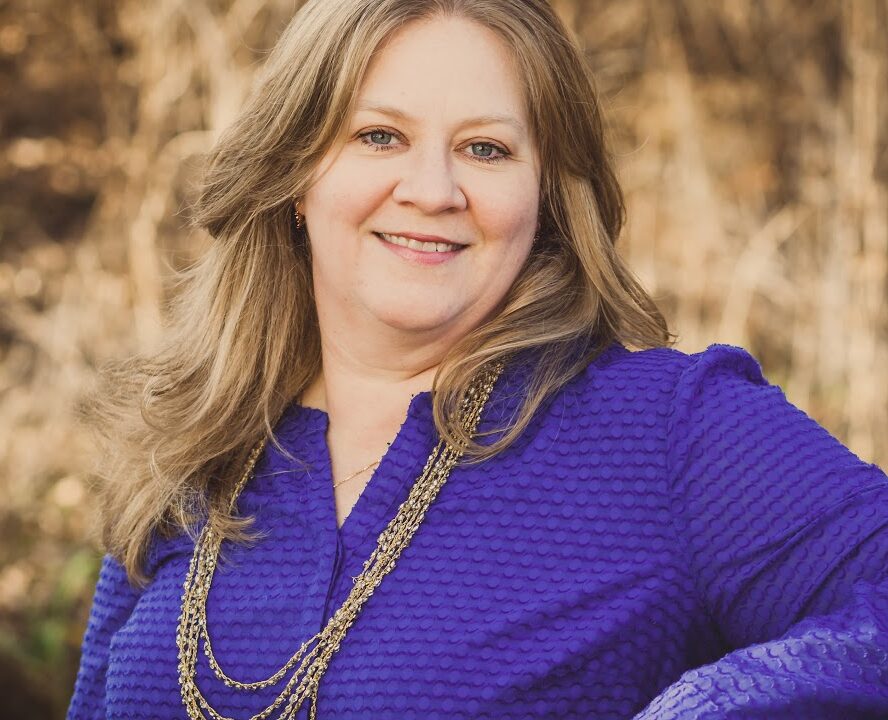
Kaylene Alvarez
Kaylene Alvarez is the CEO of Athena Global, Founder and Managing Director of BIDUK, Indonesia. She is an international development finance specialist with over 25 years’ experience in both the private and public sectors in impact investing, access to finance, SME/Entrepreneurial financing, gender lens investing (GLI) and risk management. Over the course of her career, she has worked in grass roots level organizations in community development and microfinance, as well as on Wall Street in Mergers and Acquisitions for financial services companies in emerging markets, and for International Finance Corporation (IFC)/World Bank Group. She launched Athena Global to help bridge the gap for providing impact and blended finance capital to grow sustainable businesses in emerging markets, with a focus on SME, gender-lens and tech-enhanced financial services businesses. Kaylene is also the Founder and Managing Director of BIDUK, a lending platform that is revolutionizing financing for small and growing businesses in Indonesia, with a focus on those that are women-led and/or environmentally sustainable. Kaylene believes passionately about using finance as a tool for social good. She is on the impact investing committees for two Design Funding Windows for Convergence Blended Finance (Natural Capital Asia and Global Gender + Climate), The Denver Foundation, Gary Community Foundation (Denver) and Indonesia Women’s Empowerment Fund (IWEF). She also mentors a variety of SME businesses globally. Kaylene finished her MBA from the Wharton School (University of Pennsylvania) and Master’s Degree from Johns Hopkins School of Advanced International Studies (SAIS). She is a returned US Peace Corps Volunteer, an avid reader, novice Vipassana meditation practitioner and textile aficionado. Kaylene resides in Denver, Colorado.
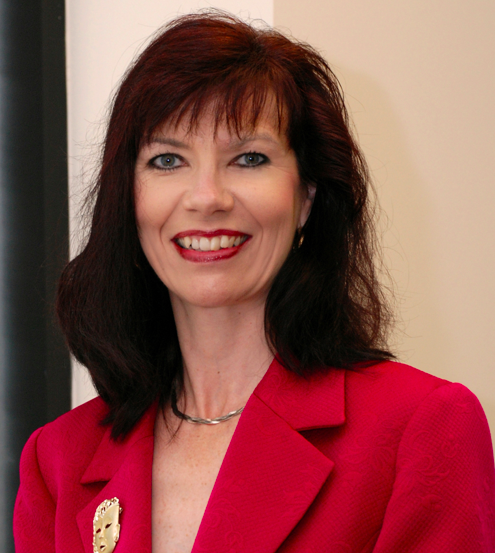
Darlene Gering
Darlene Gering is an impact entrepreneur working on increasing the flow of capital to women-owned green business ventures. She has a strong track record of rapidly scaling up business and impact organizations. Darlene started her career in financial services, working for a large multinational corporation in Toronto. Following her passion for international business development, she moved to Latin America and founded a financial services firm,. While CEO of the Burnaby Board of Trade, Darlene pioneered adoption of the triple bottom line resulting in the fastest growing board of trade/chamber of commerce in Canada. Darlene was the co-founder of Thriving Generations Employment Agency, a social enterprise that helped moms in poverty transition back to work. She managed a global firm in the construction and renewable energy sector, doubling the sales volume during COVID. Through the World Biogas Association in London, she founded the global Women in Biogas network. Darlene believes women-owned businesses have the ability to transform our world, eliminate poverty and regenerate our planet. Darlene is Chair of the Board of the Human Data Commons, an organization with a global network and a mandate to create a more sustainable future through the integration of ethics in tech, with a focus on blockchain and Web3. She enjoys mentoring impact entrepreneurs and is a Tree Keeper. Darlene resides in Vancouver.
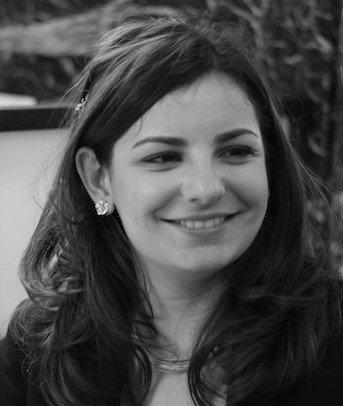
Eva Bernard
Eva is Principal at the European Bank for Reconstruction on Development working on the Gender and Climate Action agenda. She is working to promote economic inclusion in green cities and sustainable infrastructure, equal access to green jobs in the renewable energy sector, and to climate finance. She is managing and overseeing a portfolio of gender activities mainstreamed in climate investments and policies in Eastern Europe, Asia and Northern Africa, and is building internal capacity on gender and climate change issues within the EBRD. Eva has 13+ years of experience in policies and international development, with a focus on human capital, gender equality, education and skills, and climate change. Previously, she worked at the World Bank Group, at UNICEF and for the French Treasury’s Washington DC office. Eva has an economic and public policy academic background. She is an alumnus of the Harvard Kennedy School of Government, Sciences Po Paris, l’Ecole Normale Supérieure in France in Economics, and studied Climate Change at the London School of Economics’ Grantham Institute.
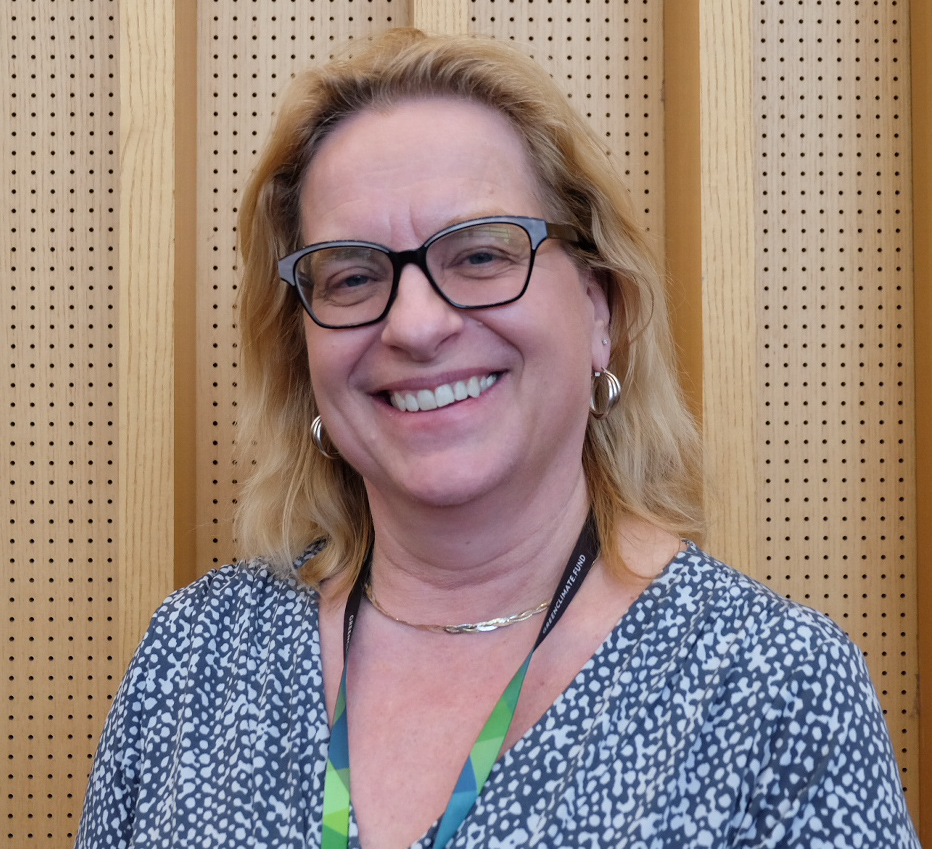
Liane Schalatek
Liane Schalatek is the Associate Director of the Washington Office of the Heinrich Böll Stiftung, a German political party foundation, affiliated with the German Green Party, with 33 offices worldwide working on sustainable development, human rights and gender democracy. At the Heinrich Böll Stiftung, Liane spearheads the foundation’s work on international climate finance with an emphasis on the transparency and accountability of public climate finance flows and on equitable, human-rights centered and gender-transformative access to climate funding, including via the Green Climate Fund (GCF), where she represented civil society concerns to the Board as a CSO Active Observer for Developed Countries from 2016-2019, and working with other climate funds. She has more than 20 years of experience in global governance issues, specifically in international development and finance and international climate negotiations, where a particular interest of her work revolved around engendering macroeconomic and finance policy. She holds dual master degrees in political science/political economy and international affairs.
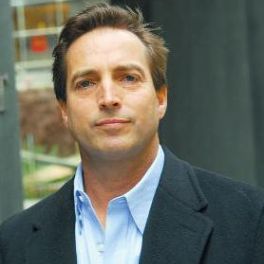
Lee West
Lee West brings almost 40 years of financial services and investing background to WOCAN. Lee’s goal is to introduce financial incentives that encourage institutional sponsors to invest directly into agricultural development and gender mainstreaming programs in developed and developing countries that directly impact women. He feels strongly that these programs should repatriate a disproportionate of those credits and incentives directly back into the local communities and NGOs. Lee has gained substantial perspective working together with WOCAN and environmental stakeholders on gender issues prior to his membership on the WOCAN Board from 2012 -2021 and as Co-Chair of the Board of Directors from 2019-2021. Lee’s relevant experiences at WOCAN include serving as a member of the W+ Advisory Council since its inception; he is Co-Founder of the Women and Climate Impact Fund, , and Co-founder of the Climate Resilient & Agricultural Innovation Hub for Women Farmers of Hawai’i County initiative. Lee works in Los Angeles and Hawaii and attended the University of California at Irvine (UCI) and Los Angeles (UCLA) studying both Economics and Business.
